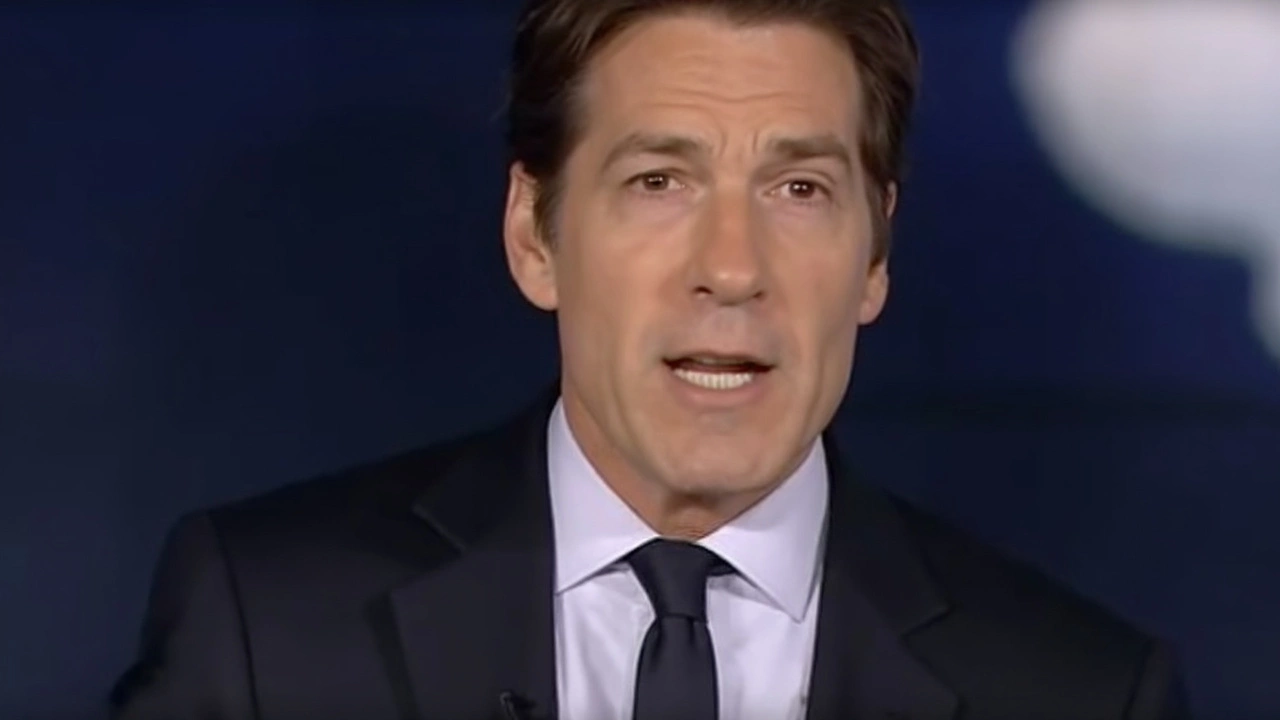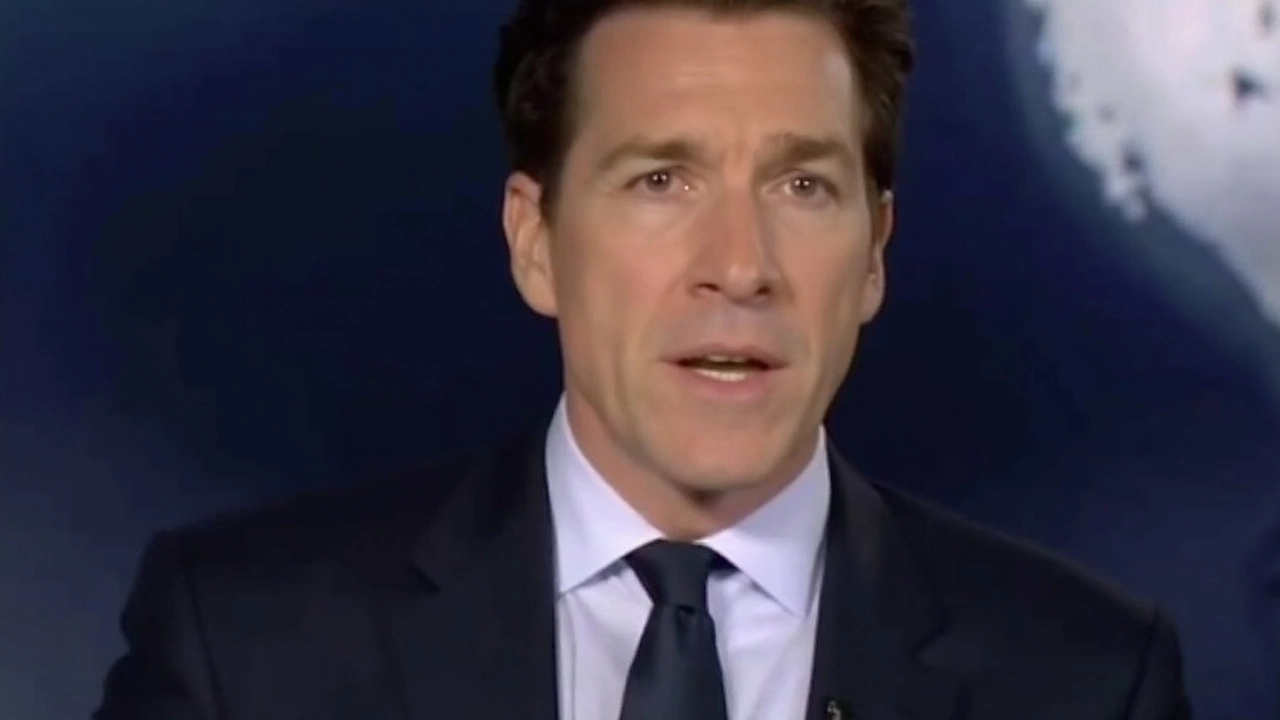The Faces and Stories Behind the Headlines
Turn on the news most nights, and you’ll probably hear the voice of David Muir walking you through chaos after chaos. But this week, Muir went one step deeper—bringing viewers into the thick of the emotion pulsing through a string of devastating stories that have gripped not only America, but the world as a whole.
First off, the courtroom in Colorado resembled something out of a thriller but with all the heartbreak of real life. A seemingly mild-mannered dentist was convicted of first-degree murder after poisoning his own wife over months. The details—cyanide and eye drops hidden inside protein shakes—were chilling, showing a patient, cold calculation behind a fatal plan. Prosecutors painted the act as premeditated and ruthless, while the testimonies left those in the courtroom shaken. Unlike many true crime plots, this was a case where the victim’s friends and family shared their shock, raw pain, and betrayal for the world to see.
Not long after, the earth quite literally shook when an earthquake ranging between 8.7 and 8.8 magnitude hit off Russia’s eastern coast. Within minutes, tsunami warnings blared across the Pacific—stretching all the way to Hawaii and up and down the U.S. West Coast. As if that wasn’t enough, Russia’s largest volcano erupted in the quake’s aftermath. Families scrambled for safety, recalling panicked runs to higher ground. Emergency crews prepared for the worst, with the tension written on the faces of officials and everyday folks caught in nature’s crosshairs.

Violence, Survival, and the Search for Answers
Back home, another flash of violence took center stage—this time in Midtown Manhattan, right inside the building housing the NFL headquarters at 345 Park Avenue. A gunman opened fire, killing four, including an off-duty police officer who had just finished his shift. Employees described a frantic scene as people rushed to secure doors and hide. One NFL worker’s quick thinking and brave actions no doubt saved more lives, and now stories of heroism are emerging along with the grim details. Police found that the gunman struggled with mental illness, fueling debates on how society handles such crises before tragedy erupts.
Politics didn’t escape the violence. In Virginia, councilman Lee Vogler was the victim of a shocking attack: doused in gasoline and set on fire. The personal nature of the assault stunned the community, as investigators scrambled to find out who was responsible—and why. Vogler himself, now recovering, gave brief comments through tears, vowing not to step away from public service despite what happened.
If you really want to feel the weight of these crises, listen to survivors themselves. Dylan Mortensen, who lived through a violent rampage, told ABC about her panic and nightmares—how she couldn’t even sleep alone anymore. She described always having an escape plan, always feeling like danger could break out in the most ordinary settings. Her words weren’t just emotional anecdotes; they became reminders of how trauma lingers long after the headlines have faded.
Mother Nature threw even more at the country with a punishing heat dome this week. Around 170 million Americans found themselves sweating through life-threatening, record-breaking temperatures. Some unlucky spots saw heat indexes topping 115°F, while tornadoes added to the chaos in other regions. Hospitals reported bumps in emergency visits, especially for the elderly and the vulnerable. The message: climate isn’t just an abstract debate, but a crisis touching real lives in real time.
Elsewhere, transportation safety was in the spotlight as the NTSB released its findings into the deadly Washington D.C. helicopter and plane collision. Their report showed that pilots didn’t realize they were about to crash, pointing to communication gaps that are raising big questions about air traffic systems in some of the busiest skies in America.
Meanwhile, thousands of miles away, there’s a looming human disaster in Gaza. The UN’s food security team, the IPC, threw up red flags about the risk of famine, especially in Gaza City. Photos from the ground show parents skipping meals to feed their children, as aid workers battle impossible odds. The warnings came not as distant statistics but gut-wrenching pleas for action.
This week also saw emergency crews in Nebraska racing against time after a biofuel plant exploded outside a small town. Three workers were still unaccounted for as firefighters fought stubborn flames and families waited for updates, their hope thinning with each hour.
And then in the UK, the somber beat of drums and heavy hearts filled the streets of Birmingham as thousands paid tribute to rock icon Ozzy Osbourne. The funeral procession drew fans of all ages, some dressed in signature Ozzy style, holding signs and singing ballads. The air, thick with emotion, showed that even amid chaos and tragedy, shared grief and celebration of life can still bring people together.
Muir’s deep dives into each story serve as a reminder: behind every statistic and headline is a real person who didn’t expect their day, or their life, to turn out this way. This isn’t just news—it’s the relentless, dramatic, and heartbreaking reality of the world we’re all living in right now.
